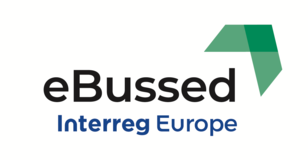Electric public transport buses are charged in large numbers at the Remiseweg in Nieuwegein. Remise is Dutch for the depot. In this environment, the last meeting of phase 1 of the eBussed project with the regional stakeholders took place. Qbuzz received representatives from municipalities from the region, province and HU University of Applied Science.
The stakeholders were updated on the results of the eBussed project, the lessons learned and insights gained from European regions. In the coming year, two topics will be further elaborated on and put into practice; peak shaving and monitoring the performance of e-buses.
The stakeholders represented the municipalities in the province of Utrecht. They are key stakeholders in providing the public space needed for charging facilities. During the event, the insights from the eBussed project were shared, such as considering the consequences of fire resistance on the planning of the depot: a lesson learned from Hamburg.
The stakeholders received feedback from eBussed partner Malta about the insights they had gained from the Utrecht region, especially the approach of the Central Station CU2030 project made a big impression. Such as dealing with public transport across the entire width, facilities for bicycle parking and the return of a road to water.
Naturally, the next steps for the further deployment of electric buses in the region were also on the agenda, including the two actions laid down in the regional action plan eBussed. Peak shaving as a smart charging method, which takes into account the availability of energy in relation to the operational status of a bus. The other action concerns monitoring the performance of the e-buses in order to learn from it and optimize the execution of public transport.
Finally, there was a tour of the charging facilities of e-buses on the depot, which was impressive to see.











